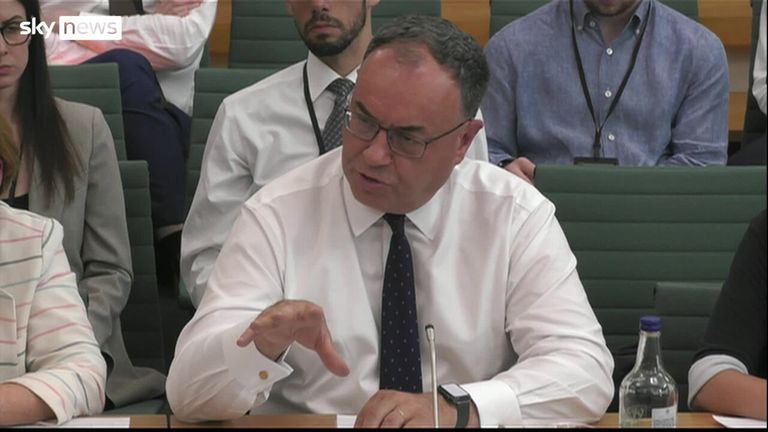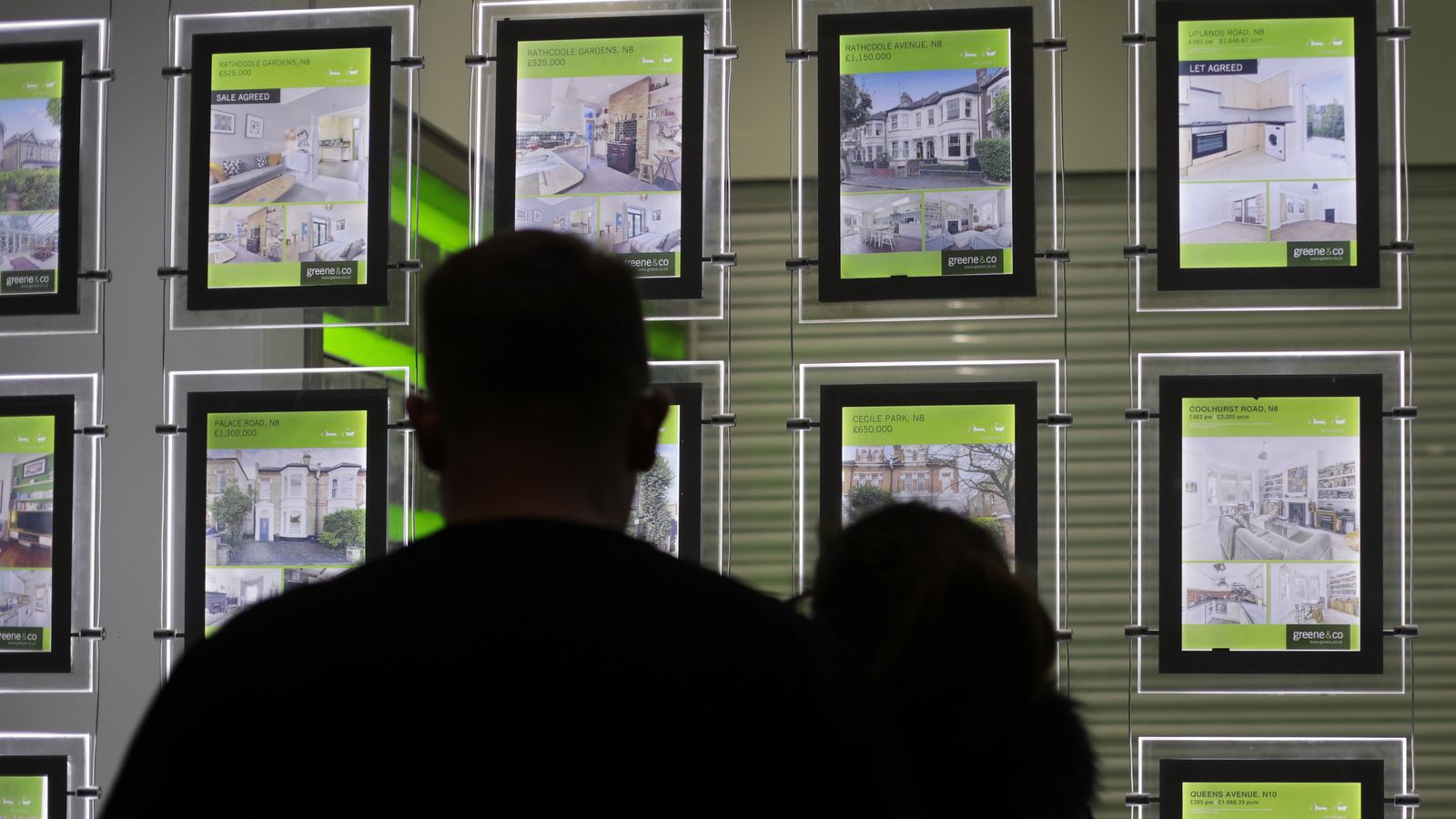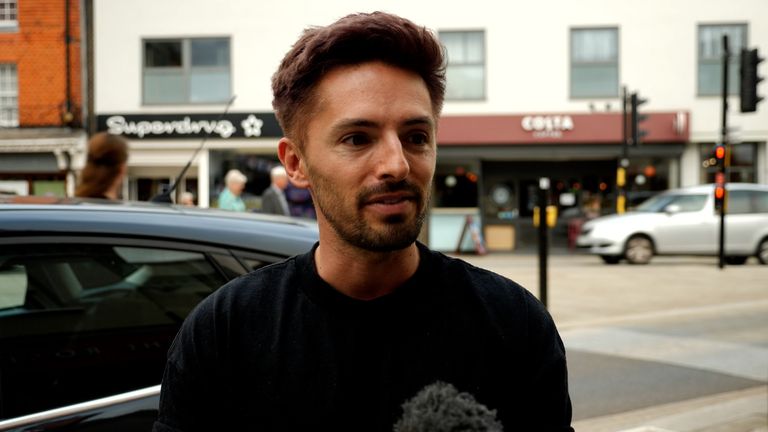
More than a third of homes for sale have had at least one price cut – the highest proportion recorded in more than a decade, according to a leading property website.
The average size of the reduction is also the largest since January 2011 at 6.2%, said Rightmove.
When applied to the average asking price, at £366,281 in September, this equates to a typical cut of £22,709.
The property portal said the figures suggested some sellers were too optimistic about their initial asking prices and have had to make some bigger-than-usual adjustments.
It comes on the back of a slump in the housing market following 14 consecutive Bank of England interest rate rises, in a bid to curb soaring inflation.
This has acted to push up the cost of borrowing, including for mortgages.
And a further hike, although possibly the last, is being forecast this week.
In a recent poll of 65 economists, all but one predicted the central bank would raise the rate to 5.5% on Thursday from 5.25%, which would mark its highest level since 2007.
However, Rightmove said there are signs of activity in the housing market starting to pick up, with the number of new properties coming to market jumping by 12% in the first week of September, compared with the average weekly volume in August.
Rightmove’s Tim Bannister said: “It’s been a slower-than-usual August, so all eyes will be on market activity over the next few weeks, which will set the trend for the rest of the year.
“The combination of 14 consecutive Bank of England interest rate rises and many buyers and sellers still catching up on lost pandemic holidays has contributed to a bigger-than-expected summer lull, though we still anticipate an autumn bounce.”
Mr Bannister added: “Plenty of sales are being agreed for properties that are priced at the right level, and those that are selling are still taking five days less than at this time in 2019.
“We’re also seeing the number of fall-throughs decline as market conditions and mortgage rates stabilise.”
Andy McHugo, director at McHugo Homes in Birmingham, said: “In almost 20 years of selling homes, I feel that this summer and last summer have been the most subdued, perhaps due to the impact of not being able to travel in the summers of 2020 and 2021, but obviously with the current economic backdrop also.
“Encouragingly, since the start of September we’ve seen an upturn in inquiries as more homeowners have been motivated to step out into the market place, which should help translate into sales over the coming weeks and months.”
Read more:
Could mortgage misery make Tory voters switch?
What is causing the mortgage crunch?
If the base rate does peak this week at 5.5% from a starting point of 0.1%, it would rank among the biggest of the so-called tightening cycles of the last 100 years, only coming behind surges that took place in the late 1980s and in the early and late 1970s.
Recession accompanied all of those prior sharp increases in rates and a downturn will feature increasingly in the minds of the Bank’s monetary policy committee, with the 14 rate hikes it has already made yet to fully feed through into the real economy.
Data between now and Thursday’s announcement could yet influence the outcome, with inflation figures for August due on Wednesday likely to buck the falling trend thanks to rising petrol prices.
While the rate of price rises has gradually been coming down from its peak of 11.1% last October – to 6.8% in the year to July – it remains high.









